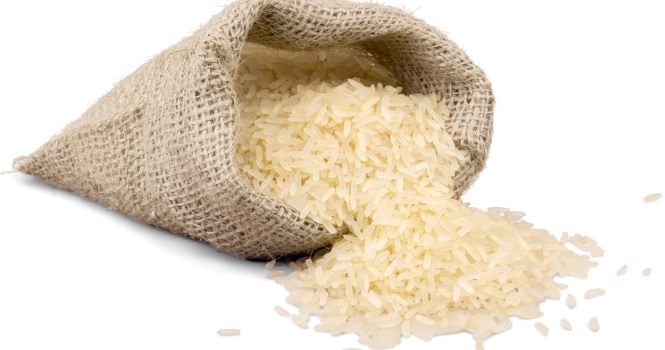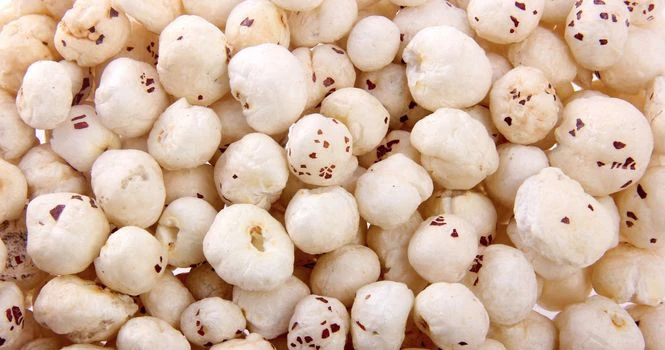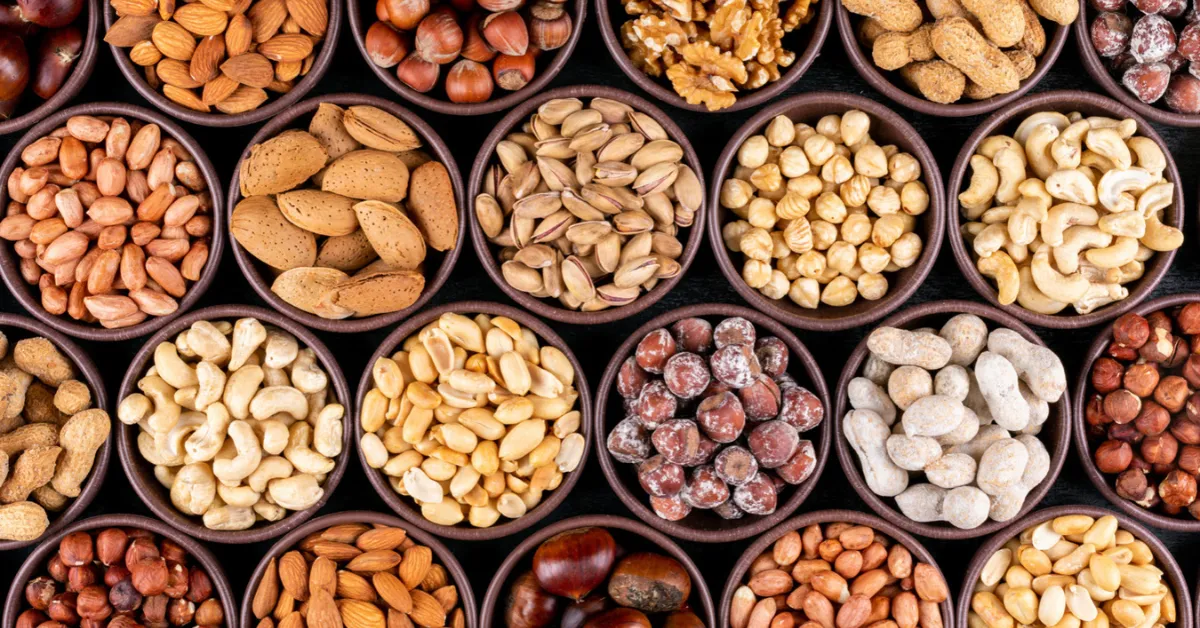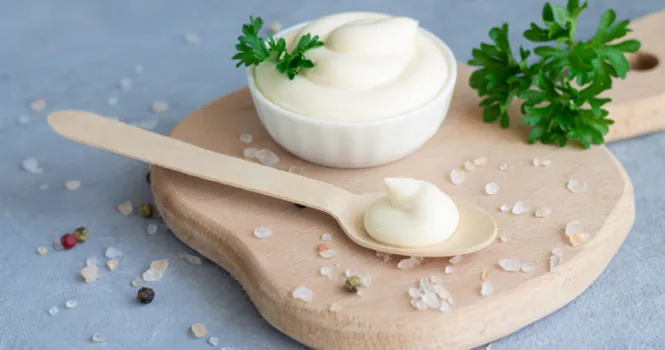9 Dried Cranberry Health Secrets Unveiled
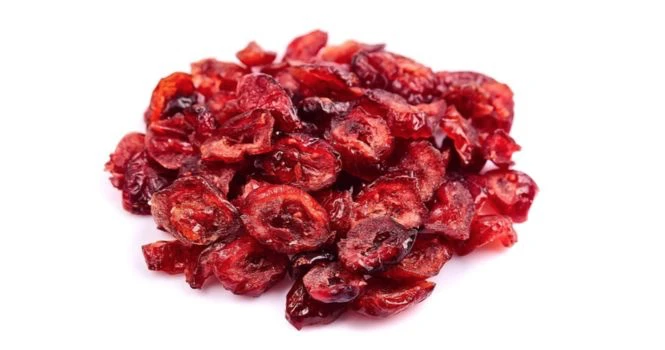
Cranberries, small, tart, and vibrantly red, have been long known for their incredible health benefits. While fresh cranberries can be hard to find outside the harvest season, dried cranberries are readily available year-round, making them a convenient and delicious addition to our diets.
In this article, we unveil 9 health secrets of dried cranberries that you may not know about.
The Cranberry Shrub
The cranberry shrub, scientifically known as Vaccinium macrocarpon, belongs to the Ericaceae family. It is a low-growing, evergreen perennial plant native to the cool temperate regions of North America, particularly the northeastern United States and southeastern Canada.
The shrub thrives in acidic, sandy, and well-drained wetlands called bogs.

Cranberry plants feature slender, wiry stems and small, dark green leaves. The plant produces distinctive, pinkish-red flowers that bloom from late spring to early summer, eventually giving way to the tart, red cranberries.
These berries are harvested in the fall, typically from mid-September to mid-November.
Cranberries have a long history of cultivation and consumption in North America, with Indigenous peoples using them as food, medicine, and dye.
European settlers also adopted cranberries into their diets, and they have since become a popular fruit worldwide, appreciated for their unique flavor and numerous health benefits.
Dried cranberries, which are made by removing most of the water content from fresh cranberries, offer a convenient and long-lasting way to enjoy this nutritious fruit.
Nutritional information
Dried cranberries are a nutrient-dense snack that offers a variety of vitamins, minerals, and other essential nutrients.
The nutritional information for a typical 1/4 cup (40 grams) serving of dried cranberries:
- Calories: 123 kcal
- Carbohydrates: 33 g
- Sugars 26 g
- Dietary Fiber 2 g
- Protein: 0.1 g
- Fat: 0.4 g
In addition to the macronutrients, dried cranberries are also a good source of several vitamins and minerals, including:
1. Vitamin C: An essential nutrient that plays a role in immune function, skin health, and collagen synthesis.
2. Vitamin E: A fat-soluble antioxidant that helps protect cells from oxidative stress and supports immune function.
3. Vitamin K: Important for blood clotting and bone health.
4. Manganese: A trace mineral that contributes to metabolism, bone development, and antioxidant function.
5. Copper: A trace element involved in energy production, iron metabolism, and antioxidant protection.
It’s important to note that some dried cranberries may contain added sugar to counterbalance their natural tartness.
When purchasing dried cranberries, look for varieties with reduced or no added sugar to minimize excess calorie intake and maintain a balanced diet.
Also, consuming dried cranberries in moderation is key, as overconsumption can lead to excessive calorie and sugar intake.
How to eat Dried Cranberry?
Dried cranberries are a versatile and delicious addition to various dishes, snacks, and meals. They can be enjoyed on their own or incorporated into a wide array of recipes.
Here are some ideas on how to eat dried cranberries:
1. Snacking: Enjoy a handful of dried cranberries on their own as a quick and convenient snack, or mix them with nuts and seeds to create a trail mix.
2. Breakfast: Sprinkle dried cranberries over your oatmeal, yogurt, or cereal for added flavor and texture. You can also mix them into pancake or waffle batter for a fruity twist.
3. Baking: Incorporate dried cranberries into your favorite baked goods, such as cookies, muffins, scones, or bread, for a sweet and tangy flavor.
4. Salads: Add a burst of flavor and color to your salads by tossing in a handful of dried cranberries. They pair well with mixed greens, spinach, or kale, and can be combined with nuts, seeds, and various dressings.
5. Grain dishes: Enhance the flavor of rice, quinoa, or couscous dishes by adding dried cranberries. They work well in both sweet and savory recipes, adding a touch of tartness that complements the grains.
6. Cheese boards: Pair dried cranberries with a variety of cheeses, crackers, and nuts for a visually appealing and flavorful cheese board.
7. Smoothies: Blend dried cranberries into your favorite smoothie recipes for a fruity flavor boost and added nutrients.
8. Energy bars and bites: Make homemade energy bars or bites by combining dried cranberries with oats, nuts, seeds, and a natural sweetener like honey or maple syrup.
9. Cooking: Add dried cranberries to stews, sauces, or stuffings for a unique flavor profile that enhances the overall dish.
When incorporating dried cranberries into your diet, be mindful of portion sizes and added sugar content, especially if you’re watching your calorie or sugar intake. Opt for varieties with reduced or no added sugar when possible.
9 Health Secrets of Dried Cranberry
Dried cranberries are not only delicious but also offer numerous health benefits.
Here are 9 health secrets of dried cranberries that make them a valuable addition to your diet:
1. Rich in Antioxidants:
Cranberries, including their dried form, are packed with antioxidants like polyphenols and flavonoids, which help protect your body against oxidative stress and inflammation.
2. Supports Urinary Tract Health:
Cranberries contain compounds called proanthocyanidins, which may prevent bacteria like E. coli from adhering to the urinary tract walls, reducing the risk of urinary tract infections (UTIs).
3. Promotes Heart Health:
The antioxidants in dried cranberries may help lower the risk of heart disease by reducing LDL (bad) cholesterol levels, preventing the formation of plaque in the arteries, and improving blood pressure.
4. Boosts Immune Function:
The vitamin C content of dried cranberries supports the immune system by promoting the production and function of white blood cells and acting as an antioxidant.
5. Supports Digestive Health:
Dried cranberries are a source of dietary fiber, which aids in digestion by promoting regular bowel movements and maintaining a healthy balance of gut bacteria.
6. Anti-inflammatory Properties:
The polyphenols found in dried cranberries may have anti-inflammatory effects, which can help reduce chronic inflammation and related diseases.
7. Improves Oral Health:
Cranberries contain compounds that may inhibit the growth of harmful oral bacteria and prevent plaque formation, potentially reducing the risk of cavities and gum disease.
8. Promotes Brain Health:
The antioxidants in dried cranberries may help protect brain cells from oxidative damage, potentially reducing the risk of neurodegenerative disorders like Alzheimer’s and Parkinson’s disease.
9. Supports Bone Health:
Dried cranberries provide nutrients such as vitamin K, manganese, and copper, which contribute to maintaining strong and healthy bones.
Side Effects of Dried Cranberry
Dried cranberries, when consumed in moderation, are generally safe and healthy. However, potential side effects may include:
1. High sugar content: Some varieties have added sugar, which can contribute to weight gain and health issues when consumed excessively.
2. Calorie-dense: Dried cranberries have more calories per serving compared to fresh ones, making it important to watch portion sizes.
3. Gastrointestinal issues: Consuming large amounts can cause digestive discomfort, particularly for those with sensitive stomachs.
4. Allergies: Rarely, some individuals may be allergic to cranberries or ingredients used in their processing.
5. Drug interactions: Cranberries can interact with certain medications, such as blood thinners. Consult your healthcare provider if you are on medications.
To minimize side effects, consume dried cranberries in moderation, choose low or no-sugar varieties, and incorporate them as part of a balanced diet.
Frequently Asked Questions
How many dried cranberries should I eat a day?
There is no specific recommended amount of dried cranberries to eat daily, but a general guideline is to consume them in moderation as part of a balanced diet.
A typical serving size is about 1/4 cup (40 grams).
Dried cranberries Health Facts
Dried cranberries are rich in antioxidants, vitamins, and minerals, such as vitamin C, vitamin E, vitamin K, manganese, and copper.
They support urinary tract health, heart health, immune function, digestive health, brain health, and bone health.
Are dried cranberries good for health?
Yes, dried cranberries are good for health when consumed in moderation as they offer numerous health benefits.
However, be mindful of the sugar content and calorie density, especially in varieties with added sugar.
How many dried cranberries a day for health?
A typical serving size of dried cranberries is about 1/4 cup (40 grams). Consuming this amount as part of a balanced diet can provide health benefits without excessive calorie or sugar intake.
Can I eat dried cranberries every day?
Yes, you can eat dried cranberries every day in moderation as part of a balanced diet. Be mindful of portion sizes and choose varieties with reduced or no added sugar to minimize excess calorie and sugar intake.
Can I eat cranberries every day?
Yes, you can eat cranberries, including fresh, dried, or juice forms, every day in moderation as part of a balanced diet.
They offer numerous health benefits, but watch out for added sugar in dried and juice varieties.
Are dried cranberries good for kidneys?
There is limited evidence to suggest that dried cranberries specifically benefit kidney health. However, their antioxidant and anti-inflammatory properties may have a positive impact on overall health, including kidney function.
If you have kidney disease or concerns, consult a healthcare professional before consuming large amounts of dried cranberries.
How much cranberries to eat a day?
There is no specific recommended amount of cranberries to eat daily, but consuming them in moderation as part of a balanced diet can provide health benefits.
A typical serving size for dried cranberries is about 1/4 cup (40 grams), while a standard serving of fresh cranberries is about 1/2 cup (50 grams).
Is it OK to eat dried cranberries at night?
Yes, it is generally fine to eat dried cranberries at night, as long as you consume them in moderation and as part of a balanced diet.
However, if you are sensitive to sugar or experience digestive issues from dried fruits, it may be best to avoid eating them close to bedtime.
What is the best way to eat cranberries?
The best way to eat cranberries depends on personal preference and dietary needs.
They can be consumed in various forms, such as fresh, dried, or as juice. Incorporating them into recipes, snacking, or adding them to salads, oatmeal, or baked goods are all enjoyable ways to eat cranberries.
Can we eat dried cranberries on an empty stomach?
Yes, you can eat dried cranberries on an empty stomach, but it is essential to consume them in moderation.
For some individuals, eating dried fruits on an empty stomach may cause digestive discomfort, so be cautious and pay attention to how your body responds.
Are cranberries good for kidneys?
While there is limited evidence to suggest that cranberries specifically benefit kidney health, their antioxidant and anti-inflammatory properties may positively impact overall health, including kidney function.
If you have kidney disease or concerns, consult a healthcare professional before consuming large amounts of cranberries.
Do dried cranberries raise blood sugar?
Dried cranberries, especially those with added sugar, can raise blood sugar levels. However, consuming them in moderation and as part of a balanced diet should not have a significant impact on blood sugar levels for most people.
If you have diabetes or concerns about blood sugar, choose varieties with reduced or no added sugar, and monitor your intake.
When should you not eat cranberries?
You should not eat cranberries if you have an allergy to them or experience adverse reactions after consuming them.
Additionally, some individuals may need to limit their cranberry consumption due to medical conditions or potential interactions with medications, such as blood thinners.
Always consult your healthcare professional if you have concerns about consuming cranberries.
Do cranberries have a lot of sugar?
Fresh cranberries are naturally low in sugar, but they are quite tart. Dried cranberries, on the other hand, often have added sugar to counterbalance their tartness.
When purchasing dried cranberries, look for varieties with reduced or no added sugar to minimize excess calorie and sugar intake.
Which is healthier: dried Cranberries or Raisins?
Both dried cranberries and raisins offer health benefits and can be part of a balanced diet. Dried cranberries are higher in vitamin C and antioxidants, while raisins are higher in iron and potassium.
Raisins tend to have a higher natural sugar content but usually do not have added sugar, while dried cranberries often contain added sugar.
Choose the one that best aligns with your nutritional needs and preferences or enjoy both in moderation.
Can I have cranberries if I want to lose weight?
Yes, you can have cranberries if you want to lose weight, as long as you consume them in moderation and as part of a balanced, calorie-controlled diet.
Fresh cranberries are low in calories and high in nutrients, making them a healthy choice. If opting for dried cranberries, choose varieties with reduced or no added sugar, and be mindful of portion sizes.
Do fresh and dried cranberries have the same nutritional value?
Fresh and dried cranberries share some nutritional similarities, such as being rich in antioxidants, vitamins, and minerals.
However, due to the drying process, dried cranberries are more calorie-dense and often have added sugar.
Fresh cranberries have a higher water content, which makes them lower in calories per serving compared to dried cranberries.
Can I have dried cranberries daily?
Yes, you can have dried cranberries daily in moderation as part of a balanced diet. Be mindful of portion sizes and choose varieties with reduced or no added sugar to minimize excess calorie and sugar intake.
Do dried cranberries promote hair growth?
While there is no direct evidence that dried cranberries specifically promote hair growth, they do contain nutrients like vitamin C, vitamin E, and antioxidants, which can support overall health, including hair health.
A balanced diet that includes various nutrient-rich foods can contribute to healthy hair growth.
Can dried cranberries treat skin issues?
There is no direct evidence that dried cranberries can treat skin issues. However, the antioxidants, vitamin C, and vitamin E found in cranberries may contribute to overall skin health by protecting skin cells from oxidative damage and supporting collagen production.
For specific skin issues, consult a dermatologist or healthcare professional for appropriate treatment options.
Sources
- The Cranberry Institute: The Cranberry Institute is a non-profit organization dedicated to supporting research and promoting the health benefits of cranberries. Although not a government source, the institute collaborates with researchers and scientific organizations to provide evidence-based information about cranberries.
https://www.cranberryinstitute.org/ - Oregon State University – Linus Pauling Institute – Micronutrient Information Center: This source provides information on various nutrients, including those found in dried cranberries, such as phytochemicals and antioxidants. https://lpi.oregonstate.edu/mic/food-beverages/cranberries
![]()




